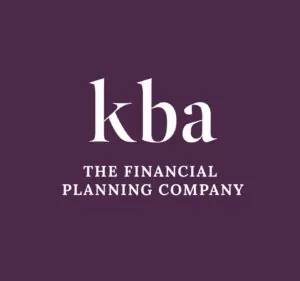When you’re viewing a property, there’s a lot to take in. You may be trying to weigh up if it’s worth the asking price, if it’s the right size for your family, and keeping an eye out for signs of damp. Having a list of key questions to ask the estate agent or owner can help you understand the property better and whether it’s right for you.
Here are eight questions you should ask at each viewing.
1. How long has the property been listed?
If the property has been listed online, you may be able to see how long it’s been on the market, and it’s worth asking the agent as well.
The response could provide valuable insight into whether the seller may be open to a lower offer. It could also indicate that there are issues that you’ve overlooked if it’s been on the market for a long time.
For the last couple of years, the property market has been busy, and properties have been selling fast. So, it’s also worth asking if there have been many viewings or offers already put in.
2. How long have the sellers lived here, and why are they moving?
While it might seem a bit nosey, asking questions about the seller and their reason for selling the property can be useful.
A family home that’s been lived in for years can indicate that it’s a friendly neighbourhood, while the seller moving to accommodate a growing family may highlight that it’s too small if you also have children.
A seller moving relatively soon after buying doesn’t mean the property isn’t right for you, but it can give you an insight.
3. Is there a chain?
Understanding the seller’s situation is important, as it can affect how long you’ll have to wait to move into your new home. A long chain is more likely to face delays as it will rely on many people successfully finding and buying a home.
If there is a chain and you’re willing to be flexible and give the seller the time they need to find the right home, they may accept a lower offer.
4. What work has recently been completed on the house?
An estate agent is likely to point out any major renovation or building work that has been carried out recently, as it’ll contribute to a higher value. However, you should ask what work the sellers have done, this can help you understand which areas may need improvements in the coming years and which ones should be reasonably reliable.
If work has been carried out, check building work has planning permission if necessary and ask if any work is guaranteed.
If you decide to purchase the property, you can also ask your surveyor to check the quality of the work carried out.
5. Can I see the Energy Performance Certificate?
All houses that are being sold are required by law to have a valid Energy Performance Certificate (EPC).
The EPC will show you how energy efficient a property is and the likely cost of utility bills. It will also highlight where improvements can be made and an estimated cost of carrying out the necessary work to improve the EPC rating.
6. What fixtures and fittings will be included?
It’s a good idea to get a clear picture of what will be included if you purchase from the outset. You shouldn’t assume things like blinds, kitchen appliances, or even carpets are being sold with the property.
The seller may also be willing to negotiate if you want to purchase some of the furniture. If you’re buying your first home this can be a useful way to ensure you have the basics when you move in.
7. What’s the area like?
You should carry out your own research about the area, but this is still a useful question to ask, especially if the seller is giving you a tour of the property.
First-hand experience can be really useful if you’re trying to understand what your life would look like if you moved.
The current owner will be able to give you an insight into things like public transport links, schools in the local area, and other facilities that you could take advantage of, like after school clubs or leisure centres.
8. What are the neighbours like?
Your relationship with your neighbours can have a huge effect on how much you enjoy living in your home, so this is an important question to ask. If there have been any disputes with neighbours in the past, sellers are legally obliged to tell you if you ask.
If you’re searching for a new home and will be taking out a mortgage, we’re here to help. We can work with you to find a mortgage lender that’s right for you and offer guidance throughout the mortgage process.
Please note: This blog is for general information only and does not constitute advice. The information is aimed at retail clients only.
YOUR HOME MAY BE REPOSSESSED IF YOU DO NOT KEEP UP REPAYMENTS ON A MORTGAGE OR OTHER LOANS SECURED ON IT.

